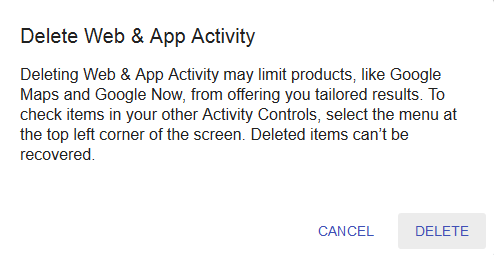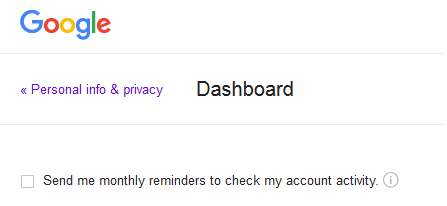
Google is, pretty much, the Internet. All we do online is somehow related to the search giant. There’s hardly a person without a Google account.
It’s only logical that if you use Google, Google will know a lot about you. But how much, exactly? If a person is illustrated by their online searches and online behavior, does this mean that Google knows everything about its users? Well, let’s see.
What Does Google Know About Us?
Thanks to its data collection mechanisms, the technology giant Google knows about:
- Our preferences and interests
- Our location (locations)
- Our complete search history
- Our contacts
- Our documents
- Our email communications
- Our YouTube watches
Why does Google need to know all that personal information about its users? One word: advertising. Interest-based, otherwise known as relevant and tailored advertising is only possible when tracking is involved. You never really think about the information being collected about you, while you’re online, right?
Learn How to Stop Targeted Ads from Following You
As we have said before – there’s nothing free in this world, including all the services we use on a daily basis under the pretense of being absolutely free-of-charge. We pay with our information. However, Google would not be here if it was not for us (and our information). We’re inter-dependable.
What we can do is improve our knowledge about the services we use. Online-educate ourselves. There are several Google pages that you need to visit in order to get a better picture of what is happening while you’re ‘googling’ something.
How Do Ads Work?
Serving relevant advertisements is Google’s primary interest. To some extent, you can control your Google Ads here – Google/Settings/Ads and can opt out of interest-based advertising.
However, just keep in mind that you will be seeing ads, no matter what. Maybe, just maybe, it’s better to see ads that will interest you more than annoy you. However, if you think that modern advertisers are too nosy, you can make things harder for them. Just remember, when you’ve opted out of targeted ads:
- You will still see ads
- The ads will be less relevant to you
- An advertiser can’t factor into their ads your previous visits to their website (search remarketing)
The good news is that Google’s tracking is fairly transparent. Go to Google History and “check out your past searches and the content you’ve browsed in Chrome and other apps”. Basically, this is where your Google web history is situated, or all of your past searches on all devices where you have registered with the same Google account. Don’t worry if you’re surprised by some of your past searches – happened to me, too.
You can also delete your searches one by one. By clicking the ‘delete’ button in the top right corner, you will be displayed this message:

Apparently, with Google, everything is about tailored ad content!
Besides your Google web history, Google also keeps track of the pages you visit no matter if you’re logged in to a Google account or not. How is this done? Through tracking cookies, AdSense and Google Analytics! AdSense and Analytics are capable of providing information about your online behavior that is quite luring to web marketers and web masters. Thanks to Analytics, Google knows what websites you visit, how often you visit them, how much time you spend there, your further interactions with the websites, etc.
If you think that this is all Google knows about you, you’re wrong! Targeted-based advertising has many needs and knowing your geo-location is one of them.
How Does Location History Work?
First, go to Location History. This is where all your locations will be stored. A rather interesting detail is that your location history is reported by your mobile device. As you can see, you are also prompted to share your home address and your work address. I would think twice, and then few more times, before ever doing it. The risk of someone, like a hacker, taking over your Google account to snoop it is way too big.

Dashboard – Monthly Reminders
Go to Google Dashboard. Here you can have a look at the resume of what Google knows about you. Including the number of your Android devices, your exact number of Google conversations (or emails), your photos and Play Store applications… and more. The good thing here is that you can tell Google to send you monthly reports of your Google account activity. Just click here:

Your Apps and
Go to Security Permissions. Here you can examine all the apps that are connected to your account. In my case, I haven’t granted any apps access to my account (which made me slightly happy!). If you’re wondering what this means, here’s what Google says:
For example, you might have downloaded an app that helps you schedule workouts with friends. This application might have requested access to your Google Calendar and Contacts to suggest times and friends for you to meet up with.

Learn More About Android Apps Permissions and Your Security
and Your Searches
Google also keeps track of your YouTube searches. You have definitely noticed that when you want to leave comment in a YouTube video, you are prompted to sign in to your Google account. Go to YouTube Search History, where you can also clear your watch and search history.

Export Your Data
Google also enables you to export all of the data associated with your account. Go to Google Takeout and select whatever data you want archived, product by product:

The Verdict
It’s pretty much self-explanatory. For many reasons, some of which we can comprehend while we know nothing about others, Google is The Spy of all spies.
What Google collects about each and every one of its users is shockingly all-inclusive. From our basic interests, through the videos we view on YouTube, to the documents we store in Google Drive, Google has the upper hand.
Is there some evil purpose of it all, besides advertising and profiting? No one knows, but people love conspiracy theories, and Google is a good subject to be discussed!
So, what do you think about Google? To what extent is the search and technology giant changing our reality?


